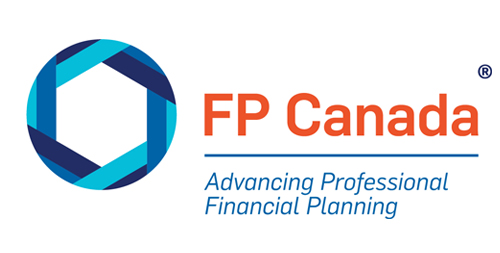Insolvency
KNOWLEDGE EXPECTED OF: QAFP® Professionals
Highest Knowledge Level: Understanding
Knowledge Levels and Associated Verbs
|
Awareness
The state of being aware that something exists / to have familiarity with a particular activity or subject
|
Understanding
To comprehend the general relationship of particulars / to have an expertise with how something works
|
Application
Ability to put information to use / to use knowledge for relevant, practical purposes
|
Evaluation
To judge or conclude by utilizing data / a systematic determination of something’s worth or significance
|
||||||
|---|---|---|---|---|---|---|---|---|---|
|
Define
To state exactly the meaning of
|
Identify
To be aware of / to recognize and correctly name / to locate an appropriate resource
|
Explain
To make clear the meaning of / to describe something in more detail or reveal relevant facts or ideas related to it
|
Determine
To ascertain / to come to a decision, such as by investigation or reasoning
|
Compare
To note the similarities and differences between two or more things
|
Estimate
To determine an approximate value for
|
Calculate
To find the value using mathematics
|
Convert
To change from one form or purpose to another
|
Evaluate
To reach a conclusion or make a through careful study
|
Interpret
To give the meaning of / to construe or understand / to translate orally
|
Hold cursor over or click on each term to read its definition.
- Define insolvency.
- Identify the providers and options that can assist an insolvent debtor, such as:
- Credit counselling agency
- Financial institutions
- Personal negotiation with creditors
- Lawyers
- Licensed trustees
- Identify options available to an insolvent debtor, such as:
- Orderly repayment of debts in certain provinces or territories
- Debt management programs
- Consolidation loans
- Creditor negotiations
- Proposals pursuant to the Bankruptcy and Insolvency Act
- Bankruptcy
- Explain the priority interests of secured and unsecured creditors in the event of insolvency.
- Identify that bankruptcy is governed under the federal Bankruptcy and Insolvency Act.
- Identify the obligations that may not be included in a bankruptcy, such as:
- Alimony and child support payments
- Student loans (if studies ceased less than seven years ago)
- Court-ordered fines or penalties
- Debts arising from fraud
- Identify implications of bankruptcy, such as:
- Sale of assets
- Trustee deals with creditors on debtor’s behalf
- Ability to borrow in the future may be impacted
- Record of bankruptcy on credit rating for six to fourteen years
KNOWLEDGE EXPECTED OF: CFP® Professionals
Highest Knowledge Level: Understanding
Knowledge Levels and Associated Verbs
|
Awareness
The state of being aware that something exists / to have familiarity with a particular activity or subject
|
Understanding
To comprehend the general relationship of particulars / to have an expertise with how something works
|
Application
Ability to put information to use / to use knowledge for relevant, practical purposes
|
Evaluation
To judge or conclude by utilizing data / a systematic determination of something’s worth or significance
|
||||||
|---|---|---|---|---|---|---|---|---|---|
|
Define
To state exactly the meaning of
|
Identify
To be aware of / to recognize and correctly name / to locate an appropriate resource
|
Explain
To make clear the meaning of / to describe something in more detail or reveal relevant facts or ideas related to it
|
Determine
To ascertain / to come to a decision, such as by investigation or reasoning
|
Compare
To note the similarities and differences between two or more things
|
Estimate
To determine an approximate value for
|
Calculate
To find the value using mathematics
|
Convert
To change from one form or purpose to another
|
Evaluate
To reach a conclusion or make a through careful study
|
Interpret
To give the meaning of / to construe or understand / to translate orally
|
Hold cursor over or click on each term to read its definition.
- Define insolvency.
- Identify the providers and options that can assist an insolvent debtor, such as:
- Credit counselling agency
- Financial institutions
- Personal negotiation with creditors
- Lawyers
- Licensed trustees
- Identify options available to an insolvent debtor, such as:
- Orderly repayment of debts in certain provinces or territories
- Debt management programs
- Consolidation loans
- Creditor negotiations
- Proposals pursuant to the Bankruptcy and Insolvency Act
- Bankruptcy
- Explain the priority interests of secured and unsecured creditors in the event of insolvency.
- Identify that bankruptcy is governed under the federal Bankruptcy and Insolvency Act.
- Identify the obligations that may not be included in a bankruptcy, such as:
- Alimony and child support payments
- Student loans (if studies ceased less than seven years ago)
- Court-ordered fines or penalties
- Debts arising from fraud
- Identify implications of bankruptcy, such as:
- Sale of assets
- Trustee deals with creditors on debtor’s behalf
- Ability to borrow in the future may be impacted
- Record of bankruptcy on credit rating for six to fourteen years


